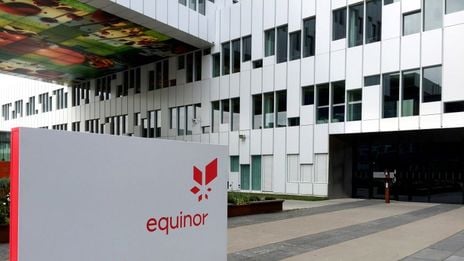While trading houses Glencore, Vitol and Trafigura agreed to lend Rosneft $11.5 billion (7.1 billion pounds) in exchange for oil supplies over five years, oil majors have largely stayed on the sidelines, preferring to buy Russian crude at spot tenders.
BP has already received some volumes of Russian Urals crude under the deal, which is still being finalised, three trading sources told Reuters. BP and Rosneft declined to comment.
"BP is exploring options that are available to it as a major shareholder in Rosneft. The deal will be somewhat different from what Rosneft has with trading houses," a source familiar with details of the deal said.
BP owns a fifth of Rosneft, which became the world's largest listed oil firm by output after acquiring BP's venture in Russia, TNK-BP, in a deal valued at more than $50 billion.
That left Rosneft, in which the Kremlin owns a controlling stake, heavily indebted and looking for deals with the likes of Glencore to lighten the burden on its balance sheet by reducing debts to banks as the money is being borrowed by the traders.
Rosneft also hopes to obtain up to $70 billion from China in prepayment for oil, in an attempt to cut its debt further. The company has kept buying assets aggressively even after the TNK-BP purchase.
Rosneft currently sells its oil from major ports via two methods - long-term loan-for-oil schemes with traders, and short-term, six-month tenders open to traders and majors.
Long-term deals with Rosneft allowed trading houses such as Glencore and Vitol to build large positions in Urals, the most important crude grade for European refiners.
But the deals also turned expensive as they are priced against Rosneft's six-month tenders, in which majors and traders often bid up prices to win volumes.
The first signs that BP is working on a new deal emerged when the major offered to sell a cargo of Urals in the Baltic Sea for early-October delivery, traders said.
"BP was simply not supposed to have this cargo as it didn't win any volumes from Rosneft in the latest six-month tender. So everyone realised that something new is coming," a trader at a rival company said.
Trading sources said BP would be allocated a total of two Urals cargoes from Rosneft in the Baltic during October. Sources declined to give exact details on how the two cargoes would fit into the new term deal.
"What it shows is that BP is not a dormant shareholder at Rosneft, but tries to explore its options," a trader at another rival said.
Apart from their shareholding relationship, BP and Rosneft also co-own German refinery venture Ruhr Oel.
The biggest buyers of Rosneft's oil, alongside trading houses, are majors such as Shell, Eni, Statoil and Total, which regularly win volumes in six-month tenders.
Trading sources said other majors were unlikely to follow BP immediately.
"We are still viewing term deals as pretty expensive given that for us it would mean lending money to Rosneft and buying oil at pretty high levels," one of the trading sources said.
(Reporting by Dmitry Zhdannikov; Editing by Dale Hudson)
By Dmitry Zhdannikov

 By
By 




